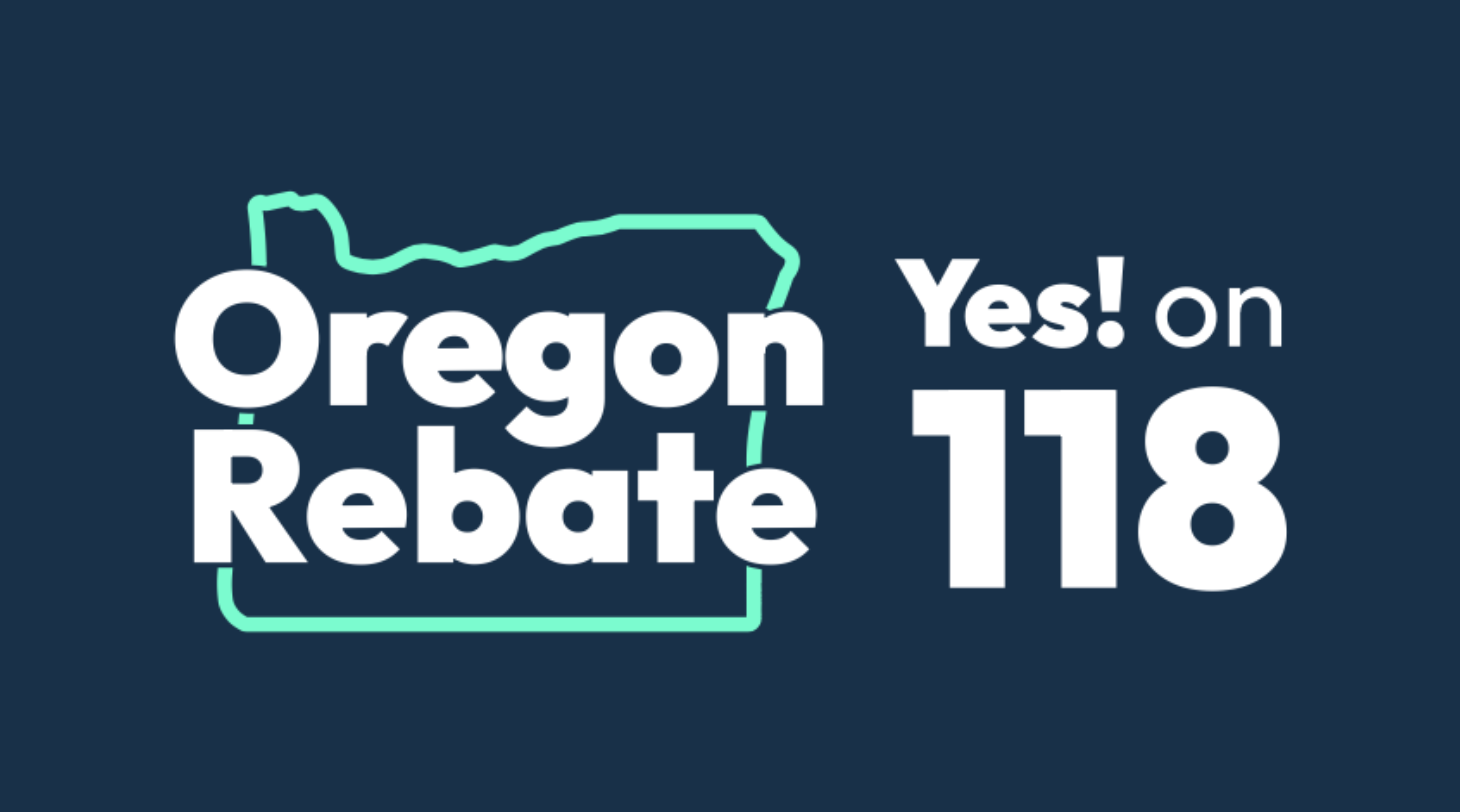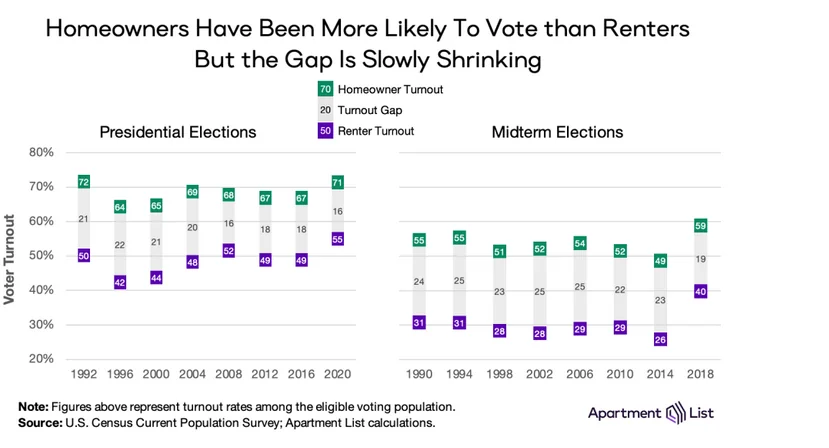Oregon
 www.yesonmeasure118.com
www.yesonmeasure118.com
I posted about this 3 months ago and it was $750--glad to see the measure is going for it. The $1,600 is per person, not household. Minors count. Large corps ($25m in revenue minimum) pay.
Seems most of the people I know have gotten sick within the past month. This is an excellent overview of the new COVID boosters, Flu shots, and vaccines. All insurance plans cover all of these vaccinations. Most will cover them at any pharmacy, but Kaiser will require you to go through them. **FLU** * Aside from good diet and exercise, the #1 thing you can do to reduce your chance of a heart attack is to get a flu shot. Flu is a common cause of heart attacks. It [cuts your risk](https://www.cdc.gov/flu/spotlights/2023-2024/flu-heart-study.htm) by 25%! * Hate needles? There is a nasal spray version of the flu vaccine, just ask your doctor about it **COVID** * If you have been avoiding boosters because the side effects are rough, check out Novavax. The MRNA ones took me out for 24-48 hrs, Novavax didn't even give me a sore arm. Just as effective. I have seen it at Rite Aid. * Boosters will not completely prevent infection, but they make infection less likely, reduce symptom severity, and are extremely effective at preventing death. Reducing your chance of infection and symptom severity also reduces your risk of [long covid](https://johnsnowproject.org/fact/all-infections-can-cause-serious-problems/) and myocarditis. * Even in cases of mild infections in healthy people, long covid can cause these symptoms for months or permanently: loss of smell, loss of mental acuity, exhaustion and fatigue, shortness of breath, etc. Your chance of getting long covid is 1-10% depending on how you define it and what study you read. The more times you get covid, the higher your risk of developing long covid. * If you got your last booster 6+ months ago, your booster is basically doing nothing to prevent infection or symptom severity at this point. But the protection against death is quite durable. For more information and FAQ, I highly suggest this article: [https://yourlocalepidemiologist.substack.com/p/a-guide-to-fall-2024-vaccines](https://yourlocalepidemiologist.substack.com/p/a-guide-to-fall-2024-vaccines)

Kroger wants to buy Albertsons, a major competitor, who also owns Safeway, which Albertsons somehow was approved to buy 3-4 years ago. The attached is a good representation of what "choice" would look like if the merger were approved by the FTC for SE metro area of Portland; 6/10 larger grocers would be run by Kroger (WinCo, Costco, Grocery Outlet and New Seasons the only exception). This is a big deal because: - Kroger has already been price gouging like crazy since the pandemic as we all knew but has been recently confirmed by Kroger themselves (https://www.newsweek.com/kroger-executive-admits-company-gouged-prices-above-inflation-1945742) - This would make bullet #1 above worse with that scale of market dominance - Kroger was among the most appalling for worker and customer safety during the pandemic. They had sneeze guards up in their 172nd location in May of *2021*, a full 1.5 years after the pandemic started, never enforced masking and refused to take any returns during the pandemic for any reason, but mainly to pad their bottom line. - Kroger's local workers are currently on strike for the crap wages and conditions they have endured. A larger corporate entity would only grow the awful employment and labor practices Kroger has. - Pharmacy services are already under-served and with Rite-aid and Walgreens closing hundreds of locations nationwide, it would force more medically dependent customers to Kroger, who demonstrated its absolute indifference to worker and customer safety before, during and after the pandemic. If you want to slow grocery price gouging, support better conditions for customers and employees, be able to choose other companies when one isn't meeting your needs, I highly recommend sharing your thoughts with the FTC and boycotting Kroger/Safeway/Albertsons as much as you can.
 www.bitdefender.com
www.bitdefender.com
I'm pretty sure this is a new sentence for me: I'm glad I haven't been to the zoo in a few years.
 www.koin.com
www.koin.com
> LED screens designed to show the current Powerball Jackpot were affected in seemingly random locations, including billboards in Coos Bay, Albany and Portland between Aug. 12 and 14. Roughly four of the affected billboards were in the Portland area. > One of the affected billboards was recorded by Reddit user “HanginWithMrPooper” near the intersection of 68th Ave. and Halsey Street in Northeast Portland.
Post about Eugene but applies to every other metro area where prices are increasing. cross-posted from: https://lemmy.world/post/18067704 > **Rent in Eugene is high for one simple reason: it's a highly desirable place to live and the people who want to live here are all competing to rent the same units.** There is more demand than supply, by a lot. Period. We have under-built for decades despite consistent net migration into our city. Landlords can charge the rent they do because *somebody will pay it*. **The only way to get lower average rents is to** ***reverse*** **migration into Eugene or increase the housing supply.** > > **Why have we under-built for decades? Because city council is an elected position**. Homeowners vote, tenants tend to not vote. And to make this worse, homeowners benefit from this supply & demand mismatch because it causes their property values to go up. Politicians don't listen to blocks of voters who don't vote. Eugene homeowners, the neighborhood associations, etc have all lobbied successfully for "single family only" zoning and kept development out. City Council members also tend to be homeowners because at 15K a year you basically need a second source of income to even scrape by on that salary. Tenants and homeowners have opposite goals when it comes to land value. > > **So tenants, if you care about rent prices, make sure you vote**, and make sure your city councilors[ hear from you ](https://www.eugene-or.gov/537/Mayor-and-City-Council)that you want more units. If you don't like the options you get at the ballot box in general elections or think there aren't enough, vote in the primaries where your vote will have an even greater impact since you'll be choosing who other people get to vote for. All you need to do in order to vote in the primaries is[ select a party](https://sos.oregon.gov/voting/Pages/registration.aspx) and your ballot will be mailed to you automatically. The whole process takes less than 5 minutes, can be done online, and you can change parties whenever you want. Selecting a party doesn't mean you have to vote for that party, only that you get the chance to vote in their primary. And vote YES on Ranked Choice Voting which is a measure that will be up for vote in the November election. > >  > > # What about private equity? Blackrock? "Price-fixing software"? > > I know it's popular to point the finger at private equity, AirBnb, or price-fixing software or whoever, but they are [drops in the bucket](https://www.theatlantic.com/ideas/archive/2023/01/housing-crisis-hedge-funds-private-equity-scapegoat/672839/) compared to the massive supply and demand mismatch we have. And many urban areas in America have. Price fixing software won't enable you to charge more for rent than the market will allow, because another landlord without said price fixing software will just rent at a more reasonable price and get the tenant while your unit sits vacant and burns a hole in your pocket. > > # What about rent control? > > Rent control will just advantage people in existing units while disadvantaging anybody who moves here from elsewhere or even from in-town. It also gives your landlord great incentive to constructively evict you and means whenever you move, your rent will take a very steep hike. It just polarizes the rental market. The total amount of rent being paid stays roughly the same, it's just no longer equally distributed among the entire renting population. Rent control doesn't work. Yes, it freezes rents for some segments of the population, but it prejudices in favor of whoever happens to be in a unit right this very moment and never moves and screws over everybody else w higher rent, especially those trying to get off the street! > > # What about expanding the Urban Growth Boundary? > > This would make more cheap land available for development at the expense of nature being harder to access and farther away. We can build up without building out. I'm not in favor of expanding the UGB personally, but it would probably help. > > # But I hate all these new luxury condos! > > K be mad then, but it's more supply. Now people who can afford luxury condos will rent them instead of out-bidding you for other units. > > # But the condos are all empty?!? > > As a tenant, *you want vacant units*. Vacant units mean landlords have to live with the threat of their units not being rented, which means they will lower prices to make sure they stay occupied. Vacant units mean more negotiating power for tenants which turns up in things like pet-friendly complexes. Every market has inefficiencies and vacant units, this is normal. Trust me, those vacant units are costing them money. If they remain vacant long enough, the price will drop. That only happens if they *actually* remain vacant though, which our supply & demand mismatch won't actually let happen sustainably. > > # What about banning corporations from owning homes? > > The legal structure of an entity owning a property doesn't matter, they can't actually set prices, the market does. Just like you can't buy a $1 million house and sell it for $2 million tomorrow, neither can blackrock. If they are sitting on property, they are losing money, but that's only true if the real estate market doesn't going up because we keep refusing to build more real estate. You need corporations to build apartment complexes, they require tens of million dollars to build, which means you need investors, which means you need a legal structure for investment to occur through safely. Most single home landlords are also LLCs. > > # What about forcing developers to make "affordable" units? > > How do you make low and medium income housing? You build new, luxury housing and wait 20 years. This is similar to rent control where it just shifts around the rent to different parts of the market. Additionally, doing this makes this place less attractive to developers. Developers want to build units that are actually going to make them money, the more red tape and regulations, the more money they waste fighting or complying with them. And it's not just the developer's decision: they have to answer to investors. Investors don't want to invest in things which don't make money. Apartment complexes cost tens of millions of dollars, you need people to invest to make that happen, so you need to make investment attractive. Investors have the luxury of investing wherever they want. Unless Eugene is "investable", they will go elsewhere and you get no units. >
I guess this means we've entered smoke season.
 www.oregonlive.com
www.oregonlive.com
What: Sisters Outdoor Quilt Show When: 9 a.m.-4 p.m. Saturday Where: Quilts will be hung in Sisters on Main Avenue, Cascade Avenue, Hood Avenue and all cross streets between Oak Street and Larch Street Cost: Free
 www.oregonrebate.org
www.oregonrebate.org
Full bill text: https://sos.oregon.gov/admin/Documents/irr/2024/017text.pdf TLDR; Oregon corporate tax has a minimum rate of 1%. This ballot measure would raise it to 3% and give $750 to *each* Oregon resident (including children). Get ready for an Uber/Lyft level of corporate ads and media spamming to try to sink this common sense bill.
The bill was widely endorsed by the crypto and financial industries alike for providing much needed regulatory clarity. Looks like it passed anyways with rare bipartisan support and is now headed for the senate. OR's house reps and how they voted Salinas (D) - NO Bentz (R) - YES Blumenauer (D) - Abstain Bonamici (D) - NO Chavez-DeRemer (R) - YES Hoyle (D) - NO Axios article about the bill: [https://www.axios.com/2024/05/22/crypto-legislation-fit21-house-passes](https://www.axios.com/2024/05/22/crypto-legislation-fit21-house-passes) Some other relevant background info: [https://www.dlnews.com/articles/regulation/us-house-passes-sweeping-crypto-fit21-bill/](https://www.dlnews.com/articles/regulation/us-house-passes-sweeping-crypto-fit21-bill/) Vote record if you want to look up your rep: [https://clerk.house.gov/Votes/2024226](https://clerk.house.gov/Votes/2024226) Among other things, the bill establishes: * Clear ways to determine if a crypto asset is a security or not, and a process for making that determination. If a crypto *is* a security, it is subject to many more regulations and laws which are needed to protect investors. * Clear ways to determine is a crypto exchange is actually an exchange, money transmitter, or other entity subject to regulation and what those regulations are * Which federal agency even has jurisdiction over crypto assets * That sufficiently decentralized cryptos (like Bitcoin) are exempt from many securities regulations. This is because a decentralized cryptocurrency can't rugpull you or otherwise collude to harm whatever investments one has made in them. When you think about bad crypto scandals like FTX, exchange collapses, and other rug pulls, they are all a result of *centralized* actors taking advantage of the trust of others. Decentralized, trustless systems like Bitcoin do not have this flaw as one does not need to trust a select set of centralized actors to faithfully and transparently administer the system. There is no single entity or set of entities, for example, who can make new Bitcoin which is not meant to be minted according to the Bitcoin protocol or force the transfer of funds from one user to another. * Likewise would exempt "decentralized exchanges" from securities regulations as there is no trusted centralized intermediary who can rugpull investors. One might use a decentralized exchange, for example, to swap BTC to ETH or another cryptocurrency. They are fast, transparent, and efficient. Personally I vote straight D on the ballot, I was disappointed to see my reps vote against this bill and surprised to see Rs voting for it.
I've lived in Keizer, OR for a bit over a year. It's just north of Salem, almost an hour south of Portland. There is a local low power station that I have not yet figured out. I have done some research (albeit surface level) into it, but have been stymied at every turn. I have no idea how they have funding for a fully ad-free radio station. I don't know why they have such a fantastic music selection 24/7. I don't know *anything* about it. It's a mystery. I thought I would share that mystery. You can listen online if you wish, but also listener beware, you have no idea what might come on next: https://themoon.fm/listen-now/ If anyone can find more information about why I cannot find a way to donate to this station, I'd love to hear it. Sincerely, Crackhappy. Edit: I contacted the station, and found out that you can donate, it's just not listed on the site at all. @TheMoonOfSalem is where you can send donations on Paypal/Venmo.
 www.wweek.com
www.wweek.com
Subheading: If the trend continues through 2030, the state could lose its recently added sixth U.S. House seat, a think tank says. > What does Oregon have in common with West Virginia, Pennsylvania and Louisiana? > > They all lost population in the year ended July 1, 2023, according to the U.S. Census Bureau’s latest estimates, along with California, Hawaii, Illinois and New York. > Overall, Oregon’s population fell by 6,021 people, or 0.14%, to 4,233,358. That’s the seventh-largest loss in the nation, just behind high-cost California at -0.19% and ahead of Rust Belt Pennsylvania at -0.08%. > > The declines, though small, are dangerous for a state like Oregon, which has relied on in-migration for much of its economic growth.
Bill name: Antisemitic Awareness Act Current status: Passed house, awaiting vote in Senate Good explainer by US news https://www.usnews.com/news/national-news/articles/2024-05-07/explainer-the-controversy-surrounding-the-antisemitism-bill Article about 700 Jewish professors who opposed the bill https://thehill.com/homenews/education/4651826-jewish-professors-biden-antisemitism-legislation/ ACLU statement against bill: https://www.aclu.org/documents/aclu-urges-congress-to-oppose-anti-semitism-awareness-act Vote tally: https://clerk.house.gov/Votes/2024172 Voted for bill: Chavez-DeRemer (R-OR), Salinas (D-OR), Bentz (R-OR) Voted against bill: Val Hoyle (D-OR), Bonamici (D-OR), Blumenauer (D-OR) If you feel passionately about this bill, contact your senators and Joe Biden who will have the final say if it passes the senate: Jeff Merkeley (202) 224-3753 Ron Wyden (202) 224-5244 Joe Biden (202) 456-1111
cross-posted from: https://lemmy.world/post/14261766 > Are you tired of voting for the "lesser of two evils"? Wish you had a say in who you got to vote for? Well you can, if you vote in the primaries! Primary elections determine who will be on the ballot in the general election. If you want to vote in the primaries for a party, you must select that party on your voter registration. You can [update your voter registration online](https://secure.sos.state.or.us/orestar/vr/showVoterSearch.do?lang=eng&source=SOS). > > The next statewide primary election is **May 21**, which means you need to register and select a party by May 1 to participate in a closed primary. The sooner you register, the better off you will be. > > What positions can you vote on in primaries? > > * President > * Governor > * Attorney General > * Secretary of State > * Treasurer > * State Legislators > * Federal legislators (house and senate) > > Voting is one important way you can be politically active. There are many other ways as well. I hope you explore all your options and engage politically. Our political process has flaws, it's easy to look at things and think they are hopeless. But remember that apathy has never worked as a strategy to change anything for the better and probably never will :).


















